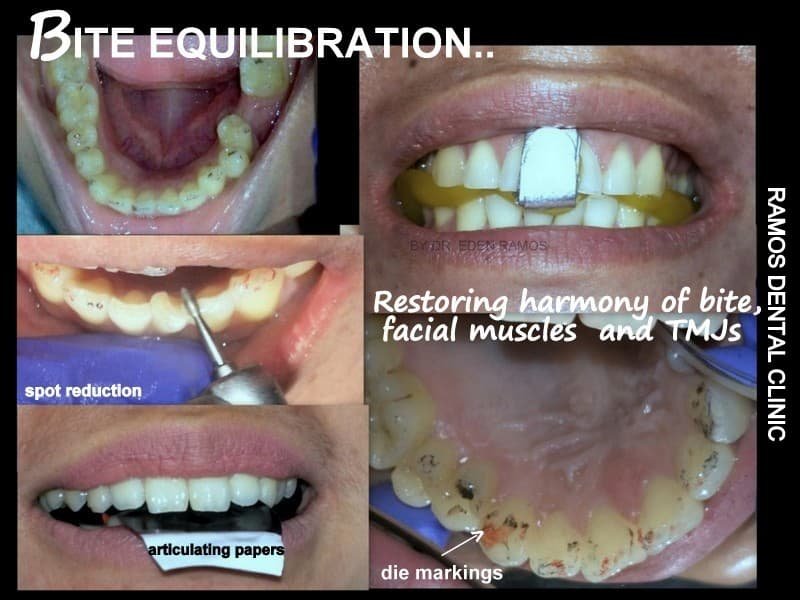TMJ and Pain Management
TMD ( Temporomandibular Dysfunction) and Pain Management
Your temporomandibular joint is the joint that connects your jaw to the bones in front of each ear called temporal bones and which enables your jaw to move up and down so you can talk, eat and chew. Any problem related to your jaw and the facial muscles controlling it are known as TMD or temporomandibular disorders. These disorders can be caused by a variety of factors such as teeth grinding or clenching, stress, arthritis in the joint and more.
If you start to feel pain and notice other symptoms such tenderness in your face and jaw area or hear popping and clicking sounds in the jaw joint upon closing and opening your mouth, don’t hesitate to seek help from our dental professionals for proper diagnosis and treatment.
Bite Equilibration
There are cases when teeth and jaws do not come together. Sometimes it’s a result of TMD, too. When left untreated, it can result in muscle pain and breakdown of dental structures. This is where bite equilibration comes in.
Bite equilibration is a rather conservative and pain-free procedure that aims to reshape the teeth and put them back into an acceptable position. This will allow the jaw to properly open and close into its position and eliminate pain.

Gnatological Splints and Mouthguards
Whether you’re actively engaged in sports or suffering pain from teeth grinding or clenching from the night before, you’ll certainly need a device to protect your teeth. But what do you exactly need between a mouthguard and gnathological splint?
Mouth guards are generally used to protect teeth, gums and mouth from injury and are usually used by athletes or those who are engaged in sports and extreme activities. A gnathological splint, on the other hand, is a device that holds your teeth together and stabilizes the jaw to prevent harmful movement. It’s best to check with our reliable dental professionals for an accurate diagnosis and proper recommendation of the best device to use.
Health Counselling
Good oral health is a significant aspect of your overall health. The health of your mouth says a lot about what’s going on in your body. In fact, it’s a good vantage point for identifying early signs of systemic disease. Working closely together with an oral health professional will not only help you keep your dental health in tiptop shape; it will also help you keep your overall health in the best condition.






